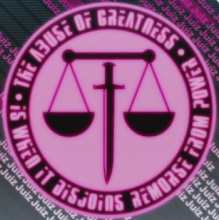Many conservative cryptographers have argued against making your own ciphers and to only use well known ciphers from cryptographic libraries to do real world encryption. I would not deny the above fact. It is true that creating a cipher unbreakable by oneself is easy due to self-biasness towards one's own ciphers. there are a lot of good ciphers that have been well studied and proven to be secure out there to be used for one's real world applications of data security.
The above statement is true if you are attempting to use a cipher for real world data security application. If your intentions of designing a cipher is for the sake of experimentation and learning more on cryptography, I would personally say it is indeed a good idea that every cryptographer-wannabe or anyone trying to learn cryptography should at least try their hands on designing themselves a cipher to demonstrate the amount of understanding they have learned so far regarding the topics of cryptography.
Bruce Schneier mentions in his blogs and books that the best way an amateur or wannabe cryptographer should begin learning cryptography is to attempt to break someone else's cipher. I would partially agree with Schneier that breaking existing ciphers and protocols are good ways to start learning cryptography. I would personally like to add on that a "newbie" should learn and demonstrate his understanding of cryptography by attempting to create a cipher for fun and attempt to break his own works. The reason I think creating and breaking one's own ciphers should be placed on equal importance with the breaking of other people's ciphers is because you created your own cipher and you should be able to understand how your own cipher work much better than someone who attempts to review your cipher. If you are trying to review someone else ciphers, you need to understand their attempts to express the mechanics of their ciphers in their white papers and not all of these white papers contain clear and concise explanations on the designs of their own ciphers. Some of the white papers simply have a chunk of formula and a "newbie" is expected to quickly grasp at these esoteric looking formulas and try to perform a cryptanalysis on the cipher. Even among expert cryptographers, they may not fully understand each other's papers and may have to communicate among themselves to enquire about the mechanics of other's ciphers. I personally feel that the option of creating a fun cipher for cryptanalysis should be one of the basics of learning cryptography and who doesn't like to have some fun making their own ciphers ?
Subscribe to:
Post Comments (Atom)

No comments:
Post a Comment